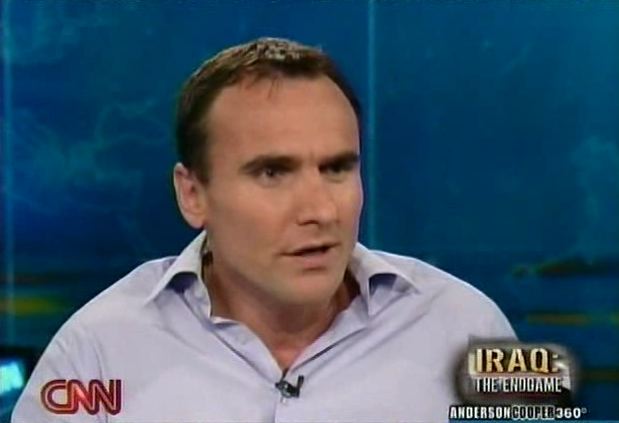AC: "The militias...are still the true power in Iraq."

Click photo to play
Length: 4:05
ANDERSON COOPER: Well, the politics of Iraq are one thing -- people differ sharply on them, of course -- the facts are another, at least they ought to be.
So, having dealt with politics at the top of the program, we turn to another fact-check from CNN's Michael Ware. He and I sat down early today, shortly after the war bill passed the Senate.
(BEGIN VIDEOTAPE)
COOPER: So, the Senate has given final approval. This is now going to go to the president. He will likely veto it.
Sending this message on a withdrawal, though, what kind of an impact do you think it has on ground for our troops and for the war?
MICHAEL WARE, CNN CORRESPONDENT: Well, clearly, for the troops, it's not a positive message.
I mean, they feel that the American people are behind them as soldiers. But they're clearly feeling that support for the mission is eroding.
COOPER: This is what you hear from soldiers who you're embedded with?
WARE: It's not articulated directly. But you can tell that they know that there's slippage, in terms of the broader mission.
And I can certainly tell you that the troops on the ground, especially those coming back for their second, third, or fourth; guys who are being extended, told they were coming for 12 months -- now they are coming for 15 and in future they will always come for 15 -- are becoming much more cynical about what is going on, on the ground and what they're achieving.
COOPER: Does a withdrawal make sense, in terms of sending a message to Iraqi politicians?
WARE: No, none whatsoever.
I mean, the Iraqi politicians don't feel that kind of pressure. That's a delusion back here in Washington and in America, that, by threatening to withdraw U.S. forces, that's somehow a carrot or a stick to motivate them, or what I hear on the ground, to incentivize them, when, in fact, it's quite the opposite.
Maliki is not the true power in that government. The true building blocks of power there, to some degree, would love a U.S. withdrawal. And many of them call for it, publicly, definitely privately, because they will be the ones who would capitalize from the chaos that will follow.
COOPER: Because they want the chaos; they want a sectarian, once and for all, figuring this out?
WARE: They want to consolidate the power that they now have. And, indeed, they want to extend it.
And, for example, essentially, this Iraqi government doesn't exist as a government, per se. It's a loose alliance of militias, most of whom, according to U.S. intelligence, are backed by Iran. So, they want to consolidate that Iranian-sponsored power and, indeed, extend it.
And you can imagine what kind of threat that poses to America's Arab allies in the region.
COOPER: It doesn't seem like the U.S. has a plan B. President Bush, I think, recently said that -- that plan B was to make sure that plan A works.
Do -- it sounds like what you're saying is, a lot of these militias, a lot of these sectarian groups, and maybe even Maliki, they do have a plan B. And they're already working on the plan B. And the plan B is when the U.S. leaves.
WARE: I think everyone is working on their plan B, Anderson.
Indeed, when I had Major General Robert Mixon -- he's a commander of a U.S. division in northern Iraq -- when he opened the door and said that we can achieve U.S. victory here with a non-Democratic state, much like our other Arab allies in the Middle East, that's plan B. If Maliki and his democracy doesn't work, then there is another option.
COOPER: Petraeus said today that if all that's happening is the sectarian groups, the death squads are just laying low, then that's going to lead to failure.
Is that's what is happening?
WARE: Oh, yes, absolutely.
The surge has its positives. I mean, it's within a very narrow confine, the successes of the surge. The militias are not dismantled. The militias have not been taken apart. They have been disrupted. They have been displaced. But they are still there. And they are still the true power in Iraq.
Whatever the surge is doing, and whatever else the U.S. mission is doing, from the beginning, it's the same as now. We're still not fundamentally addressing the true dynamics of Iraq. And that's the militias and the foreign interference, principally Iran and Syria.
COOPER: Michael Ware, thanks.
WARE: Thanks, Anderson.
